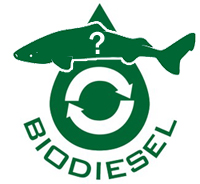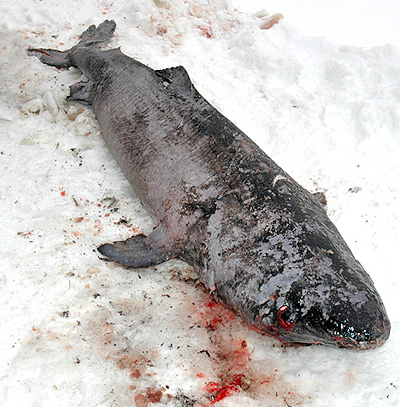
 Successfully switching the global economy from oil and coal based energy to clean energy is one of the major goals of the modern environmental movement. No single idea will accomplish this -to succeed, we’re going to need a combination of technologies.
Successfully switching the global economy from oil and coal based energy to clean energy is one of the major goals of the modern environmental movement. No single idea will accomplish this -to succeed, we’re going to need a combination of technologies.
Many proposed solutions involve a trade-off. Reasonable people can disagree over whether the environmental benefits of wind turbines or nuclear power plants outweigh the risks, for example. Every once in a while, however, a completely ridiculous idea comes along.
In 2009, researchers at ARTEK (Arctic Technology Centre) were experimenting with turning the oily flesh of Greenland sharks into biofuel. Apparently this is technologically possible:
“Proponents of the idea believe that shark meat – particularly the oil-rich liver – mixed with wastewater and macro-algae could be minced together to produce biogas which would then be used to power isolated villages.” (GEERG- Greenland Shark and Elasmobranch Education and Research Group)

This is a terrible idea. Clean energy is supposed to be less damaging to the environment than coal and oil. Removing large numbers of Greenland sharks from the ocean could be environmentally devastating. Like all sharks, Greenland sharks have an extreme K-selected lifestyle, which means that they are slow-growing and have relatively few offspring at a time (explained in more detail here). Their population simply can’t support a large fishery.
Though proponents claim that only sharks caught as bycatch would be used for biofuel, this is impossible to prove. GEERG is concerned about this as well:
“In a part of the world where this shark species is considered a nuisance to fishermen and where some municipalities still pay a bounty for every shark heart brought to port, one could doubt that all sharks turned into biogas were in fact caught accidentally. Equating dead sharks with a cash reward could lead to increased numbers of sharks killed and ultimately create a directed fishery with unknown effects on the marine ecosystem of Greenland and neighbouring Canada…In a world where marketing strategies determine the latest trends, adding the prefix ‘bio’ is often a simple way to coax people into thinking that something is good for the environment. Turning a bad thing – bycatch – into something good – biofuel – is not a bad idea unless it leads to overfishing of a fragile and largely unknown species. Bycatch is taking a terrible toll on the world’s oceans but it does not go to waste if it is left in the sea. Dead animals – including sharks – are quickly recycled on the seafloor where they feed countless other life forms searching for their own bio-fuel. This is a much more sustainable way to dispose of bycatch as it does not produce greenhouse gases nor does it encourage anyone to kill sharks intentionally for money.”
I couldn’t have said it better myself.
As far as I can tell, this idea never got off the drawing board, but it remains a useful example of how not to save the environment.

I wonder how long it’ll be before I start hearing about this as a great use for dogfish.
Brilliant! I hereby dub the process of violently extracting oil from dogfish “bangling”. A nice counterpoint to fracking, I think.
It certainly has a nice ring to it. Which is also how we’ll extract the fuel, by wringing.